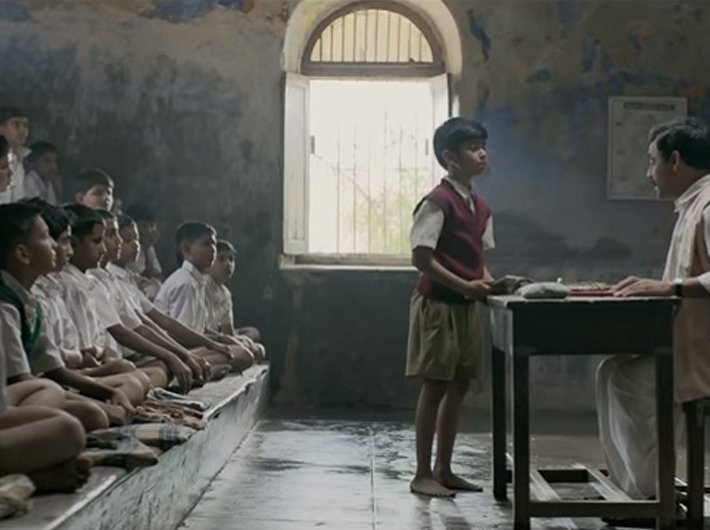'Chalo Jeete Hain' raises issues of caste, poverty, inequality in a quietly radical way
A 32-minute short film titled ‘Chalo Jeete Hain’, premiered at a screening hosted by vice president M Venkaiah Naidu at the GMC Balayogi auditorium on Wednesday, is more remarkable for the social message it carries than the fact that it is inspired by Prime Minister Narendra Modi’s childhood days.
The film is essentially centered on deep-seated caste prejudices that glaringly exist among the Hindus much to the discomfiture of a young lad called “Naru” (the abbreviated name of Narendra). It revolts Naru’s sense of justice to see a boy of scheduled caste denied education on account of his penury. The scheduled caste’s unending travails and society’s apathy is boldly depicted in the movie.
But the beauty of the movie is that it is not seditious. The ‘peela phool’ (yellow flower) offered to the gods in Hindu temples is used as a metaphor of social reforms. In fact, “Peela Phool” is also the title of a play written by Modi during his school days and staged in Vadnagar town where he spent his childhood days. The play is essentially a commentary against orthodox brahminical order but avoids commenting against the caste system directly.
For instance, the movie is replete with instances of even upper caste people coming to the support of those considered untouchables by the higher echelons of society. The faith in the inner goodness of the society is emphasised quite forcefully when the protagonist of the movie manages to collect enough money through contribution to fund education of the scheduled caste friend. One can see the satisfaction on the face of Naru when he sees his friend walking into the classroom.
This short movie breaks the usual mould on various counts. It carries a very profound message without spreading any rancour against anyone. Though it is apparently inspired by Modi’s childhood life, it does not convey any political message and exclusively focuses on social reform. What is particularly outstanding in this short film is the deep empathy felt for one another by those living on the margins in the suburban milieu.
Naru’s family is also living in stark poverty and economically they are only a shade better than the scheduled caste family, though they are not so ostracized socially. Yet Naru could easily identify himself with the travails of a scheduled caste boy both economically and socially. He seemed quite conscious of humiliation one faces on account of not only economic marginalisation but also social inequality. In one scene, the hero accompanies his mother who does domestic chores on a rich neighbourhood to eke out her family’s living.
‘Chalo Jeete Hain’ is also a classical portrayal of society’s fault line while reposing an unremitting faith in its collective strength to overcome it. The movie may not be a work of revolutionary story-telling in the subversive sense – it is conformist to the core. This may expose the movie to the charge of being an exercise in public relation by the prime minister. It may also be seen as a prelude to image correction in the run-up to the election campaign for 2019 Lok Sabha elections. Without contesting these charges, there is no denying the fact that the short film is a socially audacious enterprise in a scenario where a biopic like ‘Sanju’ gets a big draw. In this case, the protagonist of the movie, Naru, would have to bank on the collective goodness of the society to make this movie a vehicle of social message and not just entertainment.
[This comment has appeared on FirstPost.com]

